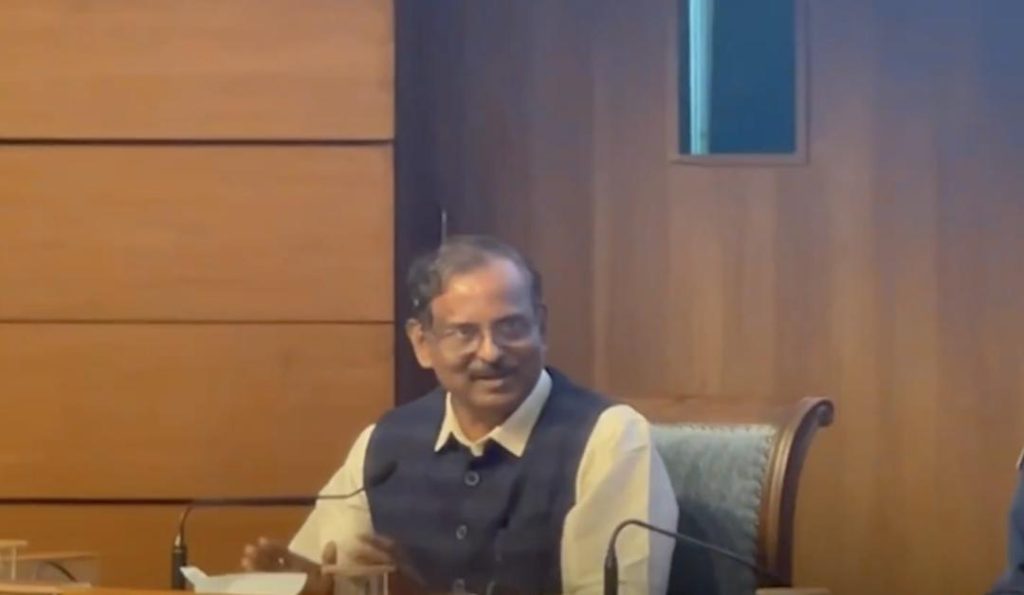
We Detected a Leak in the Rocket Carrying Shubhanshu, Could’ve Been Catastrophic: ISRO Chief
In a shocking revelation, ISRO Chairman V Narayanan has revealed that the space agency detected a leak in the SpaceX Falcon-9 rocket that carried astronaut Shubhanshu Shukla to space. The leak, which was initially dismissed by SpaceX as “minor,” was deemed critical by ISRO, forcing the agency to postpone the launch. In a stark warning, Narayanan said that the leak could have caused a “catastrophic” mid-flight failure, potentially putting the lives of the four astronauts on board at risk.
The incident highlights the importance of international collaboration and vigilance in the space industry, where safety is paramount. In this post, we’ll delve into the details of the leak, how it was detected, and the implications of the incident.
The Leak and its Discovery
According to ISRO, the leak was detected during the pre-launch checks of the Falcon-9 rocket. The space agency’s team of experts identified a fuel leak in one of the rocket’s engines, which could have compromised the safety of the mission. Initially, SpaceX dismissed the issue as minor, but ISRO’s probe forced the agency to take a closer look.
“We detected a leak in the rocket carrying Shubhanshu, which could have been catastrophic,” Narayanan said in an interview. “SpaceX took it little lightly, but we’ve saved four astronauts’ lives.”
Postponing the Launch
Following the discovery of the leak, ISRO and SpaceX decided to postpone the launch to ensure the safety of the astronauts on board. The decision was made after a thorough investigation and consultation with experts from both agencies.
The launch was originally scheduled to take place on a specific date, but the incident forced SpaceX to push the launch back to a later date. This delay allowed the agencies to conduct further tests and inspections to ensure that the rocket was safe for launch.
The Implications
The incident highlights the importance of international cooperation in the space industry. ISRO’s vigilance and expertise helped to detect the leak, which could have had catastrophic consequences. The incident also underscores the need for transparency and openness in sharing information and best practices.
The leak could have had severe consequences, including a mid-flight failure that would have put the lives of the four astronauts on board at risk. The incident serves as a stark reminder of the importance of safety protocols and the need for continuous monitoring and testing.
ISRO’s Role
ISRO’s role in detecting the leak is a testament to the agency’s expertise and dedication to ensuring the safety of space missions. The agency’s team of experts worked closely with SpaceX to identify the issue and take corrective action.
Narayanan’s statement emphasizes the importance of ISRO’s role in detecting the leak and preventing a potential catastrophe. “We’ve saved four astronauts’ lives,” he said, underscoring the significance of the agency’s work.
Conclusion
The discovery of a leak in the SpaceX Falcon-9 rocket carrying astronaut Shubhanshu Shukla serves as a stark reminder of the importance of safety protocols and international cooperation in the space industry. ISRO’s vigilance and expertise helped to detect the leak, which could have had catastrophic consequences.
The incident highlights the need for transparency and openness in sharing information and best practices. It also underscores the importance of continuous monitoring and testing to ensure the safety of space missions.
As the space industry continues to evolve and expand, incidents like this serve as a reminder of the importance of prioritizing safety and collaboration. The incident is a testament to the importance of ISRO’s role in ensuring the safety of space missions and a reminder of the agency’s expertise and dedication to its work.
Reference:






